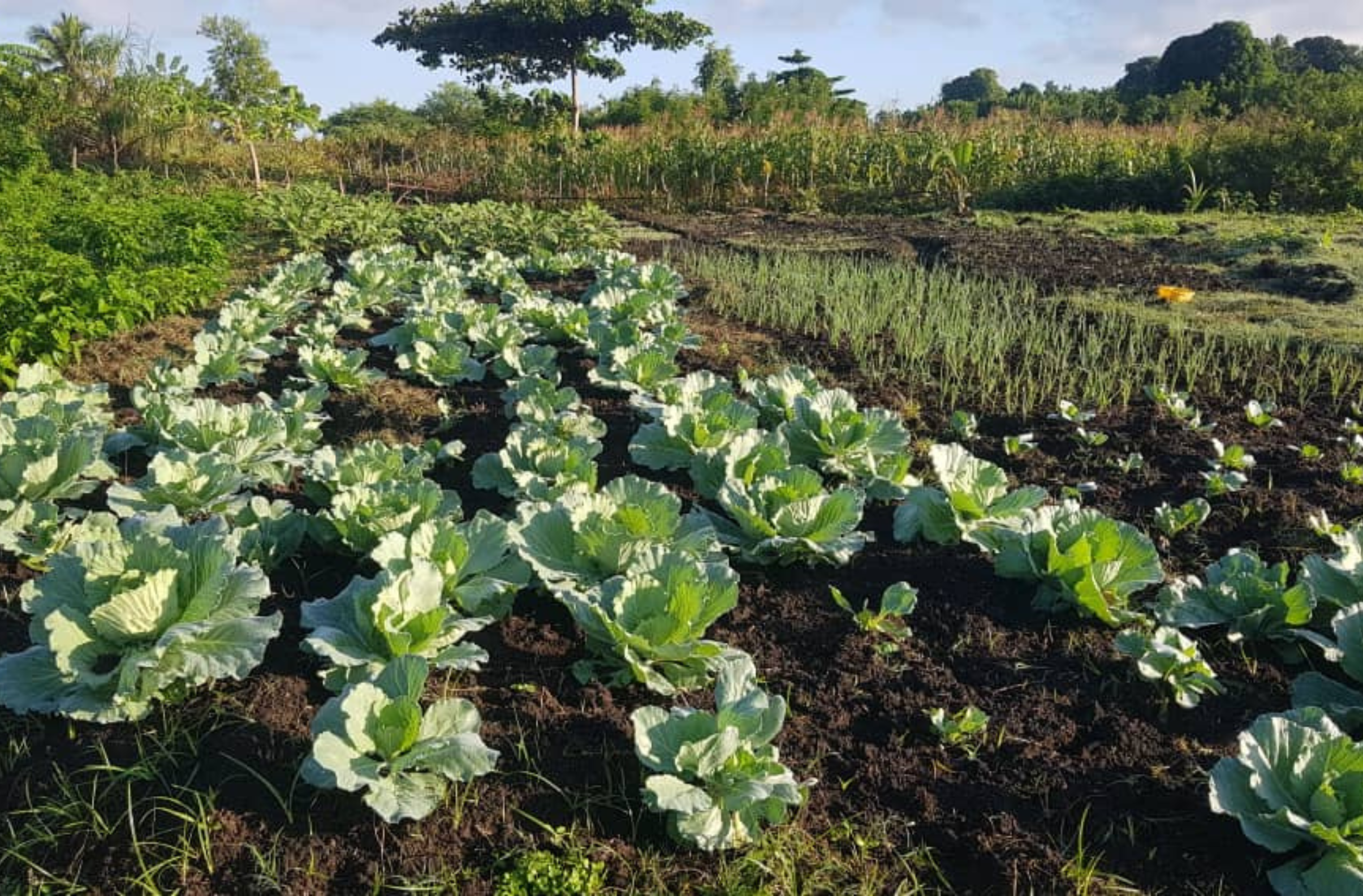



Darlie Pricila Hershel Louis
Librarian
TSF – Haiti
What is “Jaden Lakou”?
To mark Environment Day, our blogger Pricila spoke with Frito Jocelin, a former beneficiary of the Saint Francis of Assisi charity and Terre Sans Frontières’ assistance to Île-à-Vache in Haiti.
Now a graduate in agronomy, he supports farmers in their transition to more sustainable agroecological practices by providing them with tailored and effective technical training.
“The objective is to promote and develop the practice of “Jaden Lakou” in order to improve household nutrition and generate sufficient income to meet their basic needs.”
Recently, in 2022, I was delighted to be appointed as one of the leaders in charge of implementing TSF’s agroecological project, financially supported by the MRIF, for the benefit of my island’s residents.
My joy at teaching good food production practices, while respecting the environment and biodiversity, was heightened, especially since I would be doing so within my own community.
This project, in fact, having several phases including: the distribution of food kits to 100 beneficiaries, a distribution of goats, training for the establishment of small businesses and the Jaden Lakou, were successfully received.
What is “Jaden Lakou”?
Jaden Lakou is a traditional agricultural practice in Haiti in which residents primarily grow crops for their own consumption. This system of self-sufficiency allows families to meet their daily food needs. When production exceeds family consumption, the surplus is sold on the local market. This generates income used to finance children’s education, purchase other essential products, or cover daily needs related to household survival and well-being.
Thus, the project provides both subsistence and purchasing power!
This is what we want most from agroecology training
The goal is to support and encourage participants to produce more, while respecting agroecological standards to better protect the environment. This is why we say NO to the use of chemical inputs in agricultural production.
We also wanted to instill in them the value of market gardening, which, in a Jaden Lakou system, will undoubtedly succeed and generate significant income during harvests. Indeed, these products sell well and quickly, given their frequent and essential use in Haitian cuisine.
The testimonies of project participants clearly confirm the positive impact of the training on their lives as men and women living in rural areas, as well as on the life of the community.
Impact of the project on the community
These people, although they had arable land before the project, mainly obtained their food from vendors from the city of Cayes. This became difficult, sometimes even impossible, when the waters rose (you have to cross the sea to get to Les Cayes). Thus, with this innovation and the increase in the number of Jaden Lakou, they can now supply themselves with the agricultural products they need to survive.
We can also count on the integration of large-scale yam production on the island.
Contribution of the Jaden Lakou practice to community development
By using the Jaden Lakou for food production, we are giving everyone the opportunity to be suppliers, which will increase the supply of agricultural products on the market. Moreover, this will reduce household expenses and save them time.
What I hope above all is that we can continue with the training and this Jaden Lakou project. Not only on Île-à-Vache, but in several rural areas across the country where people are experiencing a food crisis.
Darlie Pricila Hershel Louis